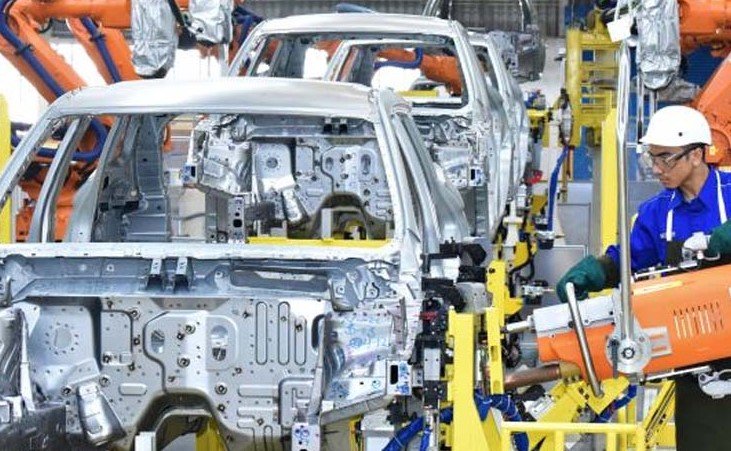Prioritising Middle-Class Relief and Strengthening Local Industries
As Budget 2025 approaches, the Rashtriya Swayamsevak Sangh (RSS) has outlined a set of key priorities for the Indian government. These include providing relief for the middle class, boosting local manufacturing, and creating a more supportive environment for small and medium enterprises (SMEs). RSS-affiliated organisations, such as Swadeshi Jagran Manch (SJM) and Laghu Udyog Bharati (LUB), have already met with Union Finance Minister Nirmala Sitharaman to present their wish lists, aiming to shape economic policies in line with their vision for India’s growth.
One thing is clear: while big-ticket reforms and revenue generation are vital, the Sangh stresses that the burden on the middle class must be reduced, local businesses should thrive, and the national economy should be fortified against excessive privatisation.
Relief For the Middle Class: Tackling the Rising Cost of Living
The rising cost of living has been a constant source of concern for the Indian middle class, which forms the backbone of the economy and serves as the primary voter base for the BJP. RSS believes that the budget should provide much-needed relief, focusing on reducing the financial strain faced by salaried professionals, self-employed individuals, and other middle-income households.
Several proposals have been put forward, including:
- Tax relief for middle-income groups
- Higher deductions for essential expenses like healthcare and education
- Stricter measures to control inflation and reduce price volatility
The hope is that these changes will make life a little easier for the average Indian, who has faced stagnant wages amidst rising prices and increasing household expenses.

Strengthening Local Businesses: The Need for a National Manufacturing Policy
RSS-affiliated organisations like SJM and LUB have been vocal about the need to bolster local businesses and reduce reliance on multinational corporations. A major focus for Budget 2025 is the support and growth of the SME sector, which plays a vital role in job creation and economic development.
The Sangh wants the government to take several steps to promote indigenous industries, including:
- Easier access to credit and lower compliance costs for SMEs
- Incentives for domestic manufacturers through production-linked incentives (PLIs)
- The imposition of tariffs on select Chinese products like umbrellas and footwear to protect local businesses
In a meeting with News18, Om Prakash Gupta, National General Secretary of LUB, said, “We expect more measures to help small businesses. The government has taken several steps, but we need more to support our indigenous sectors.”
SJM has also pushed for a national manufacturing policy to safeguard the interests of homegrown businesses, ensuring that they thrive in the face of increasing global competition. The focus here is on reducing India’s dependency on foreign imports, especially from China, and encouraging the growth of self-reliant industries.
Additionally, SJM has suggested that at least 50% of the total PLIs should go to the SME sector, highlighting the need to ensure that smaller businesses benefit from the same incentives given to larger enterprises.
Boosting Education and Skill Development
The RSS has long advocated for nationalistic education, promoting a curriculum rooted in Indian values, history, and knowledge systems. As part of Budget 2025, the Sangh seeks to see a larger portion of funds allocated to education, particularly for rural schools, higher education institutions, and skill development programs.
The Akhil Bharatiya Vidyarthi Parishad (ABVP), the student wing of RSS, has been actively pushing for:
- Greater investment in rural education
- Increased funding for research institutions and skill-development centers
- A single authority to oversee educational institutions, ensuring better policy coordination and preventing ideological dilution
ABVP also stresses the need for greater oversight over foreign influence in Indian academia. According to the organisation, educational institutions must align with India’s national interests, and foreign entities should not unduly affect the country’s educational landscape.
A Holistic Approach to Economic Growth
The RSS’s vision for Budget 2025 is not just about big-ticket reforms but a holistic approach to economic growth. This involves supporting the middle class, nurturing local industries, prioritising education and skill development, and ensuring the economy works for all, not just the wealthy elite.
While several of these proposals focus on specific sectors like manufacturing and education, there is a clear emphasis on making life easier for ordinary Indians. The aim is to foster an environment where small businesses and individuals can flourish while ensuring that India’s national assets are protected and not sold off to foreign corporations.
As the country waits for the final budget announcements, these proposals from RSS and its affiliated organisations reflect a growing desire for economic policies that benefit the masses and secure India’s future in a competitive global economy.
